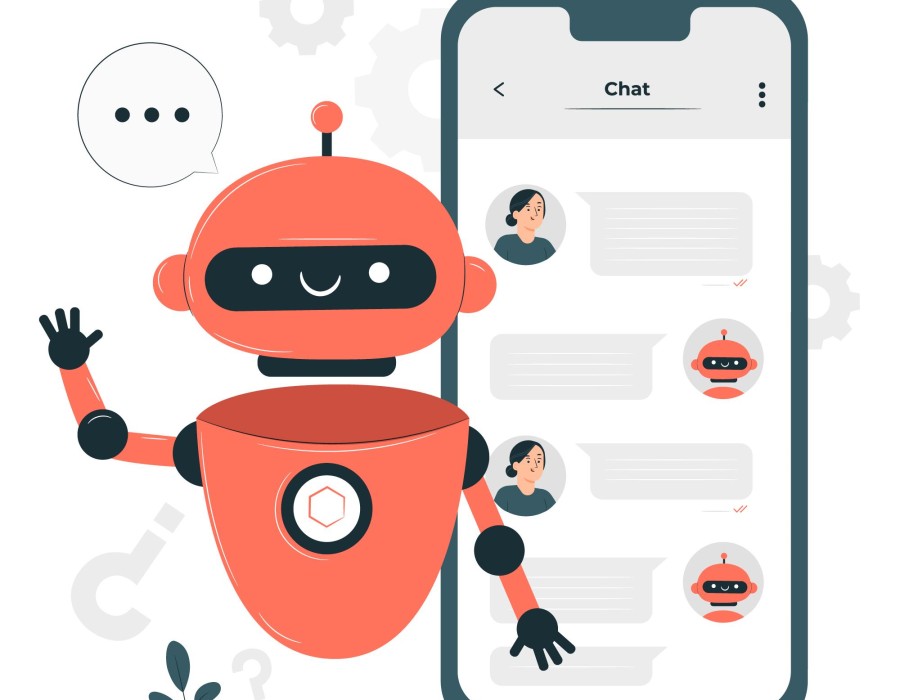In the digital age, where immediacy and personalization define user experience, the evolution of artificial intelligence (AI) has introduced groundbreaking innovations. One of the most transformative advancements is the deep learning AI chatbot—a technology that combines the power of artificial intelligence with the adaptive capabilities of deep learning to create highly intuitive and responsive conversational agents. These chatbots are not only changing the way businesses interact with customers but are also transforming education, healthcare, and emotional support systems.
What is a Deep Learning AI Chatbot?
A deep learning AI chatbot is an advanced form of conversational AI that uses deep neural networks to analyze and understand language at a human-like level. Unlike rule-based chatbots that follow predefined scripts, deep learning chatbots can learn from vast datasets, identify patterns, and generate intelligent, context-aware responses.
These systems leverage Natural Language Processing (NLP) and Natural Language Understanding (NLU) to comprehend user input, and Natural Language Generation (NLG) to formulate replies. The more data they process, the better they become at mimicking human conversation.
How Deep Learning Enhances AI Chatbots
Deep learning is a subset of machine learning that uses artificial neural networks to simulate the decision-making process of the human brain. Here's how it boosts chatbot performance:
- Contextual Understanding: Deep learning allows chatbots to maintain context over long conversations. They can remember previous queries, detect intent, and provide relevant answers, making interactions feel more natural.
- Improved Language Comprehension: Traditional chatbots often misinterpret complex language or slang. Deep learning AI chatbots, trained on diverse linguistic datasets, can handle nuanced and colloquial speech with remarkable accuracy.
- Self-Learning Capability: These chatbots continuously improve through reinforcement learning. They analyze user interactions to refine their responses, leading to increasingly intelligent behavior over time.
- Multilingual Support: Deep learning models can be trained in multiple languages, enabling global communication and customer service without the need for human translators.
Real-World Applications
1. Customer Support
Many companies now deploy deep learning AI chatbots on their websites and apps to handle customer queries 24/7. These bots can resolve complaints, process orders, and provide personalized product recommendations—reducing wait times and operational costs.
2. Healthcare Assistance
In the medical field, chatbots like Ada and Babylon use deep learning to provide symptom checks, medication reminders, and even mental health support. These bots enhance accessibility, especially in regions with limited healthcare infrastructure.
3. Education
Educational platforms utilize deep learning AI chatbots as tutors or assistants. They help students with homework, explain complex concepts, and offer practice tests—all tailored to the student's learning pace.
4. Mental Health and Therapy
Deep learning chatbots like Woebot are designed for emotional support. They use cognitive-behavioral techniques to help users manage stress, anxiety, and depression in a confidential and judgment-free environment.
Benefits for Businesses and Users
- Scalability: One chatbot can handle thousands of interactions simultaneously, making it ideal for scaling business operations.
- Cost-Effectiveness: Reduces the need for large customer service teams, saving money.
- Availability: Offers round-the-clock assistance, enhancing customer satisfaction.
- Personalization: Adapts responses based on user data and interaction history, creating tailored experiences.
Challenges and Ethical Considerations
Despite their capabilities, deep learning AI chatbots are not without challenges. Bias in training data, lack of empathy, and concerns over data privacy are major issues. Developers must ensure that chatbots adhere to ethical guidelines, maintain transparency, and protect user data.
Moreover, while they can simulate empathy, they cannot fully replace human emotional intelligence, especially in sensitive scenarios such as trauma counseling or serious medical diagnoses.
The Future of Deep Learning AI Chatbots
As deep learning algorithms become more sophisticated, AI chatbots will continue to evolve. Future developments may include:
- Emotionally intelligent chatbots capable of recognizing and responding to human emotions more effectively.
- Voice-enabled interactions for more seamless and natural conversations.
- Deeper integration with IoT devices, creating fully automated smart environments.
Conclusion
The emergence of deep learning AI chatbot marks a significant shift in how we interact with machines. These intelligent systems are not just tools for automation—they are becoming companions, educators, and even caregivers in our digital lives. While challenges remain, the potential for deep learning chatbots to enrich human interaction and accessibility is undeniable. As this technology matures, its role in shaping the future of communication will only grow stronger.





Comments